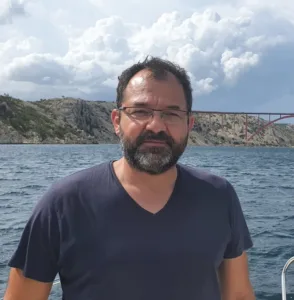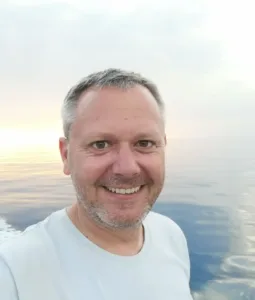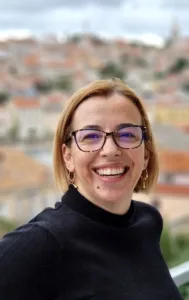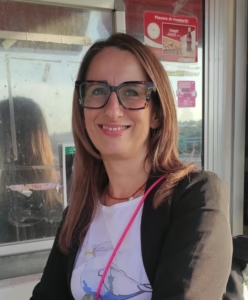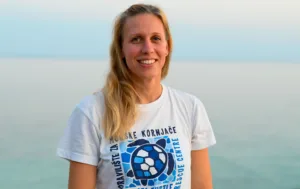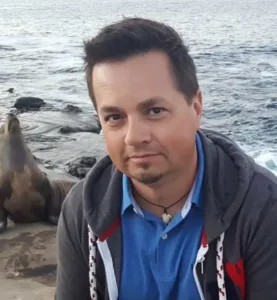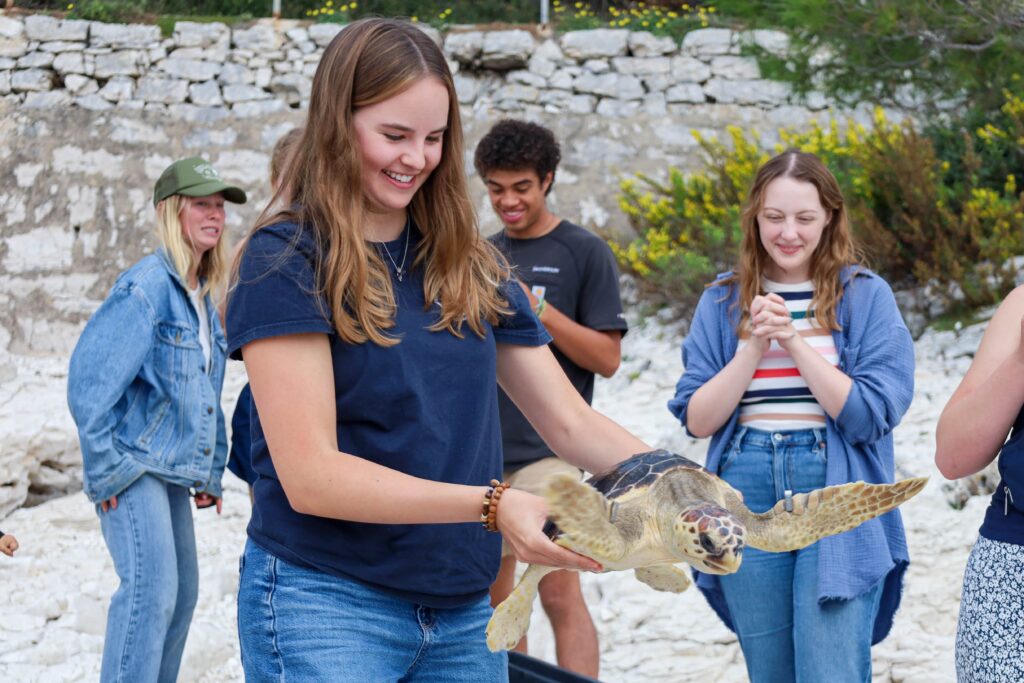Croatia
Study Abroad in Croatia
Explore Mediterranean islands and wind through the Adriatic archipelagos in search of whales, dolphins, and sea turtles. Work alongside marine conservation professionals as they study population ecology, community behavior, and practice rescue and rehabilitation actions on these animals. The Center for the Conservation of Marine Megafauna program takes place in the Croatian archipelagos of the Eastern Adriatic coast. Consisting of 1,244 islands, islets, and reefs, the Croatian coast is one of the most beautiful in the Mediterranean. The Adriatic Sea is a hotspot for biodiversity, and one of the regions of the Mediterranean most affected by climate change. Course fieldwork focuses on issues such as spatial and population ecology of marine megafauna, human dimensions of conservation, and veterinary sciences.
Programs
Sea Turtles and Marine Mammals of the Adriatic
See Program Costs
Program Costs
- Tuition
- Room & Board
- Total
21st Century Marine Pollutants
See Program Costs
Program Costs
- Tuition
- Room & Board
- Total
Where You'll be Living
The SFS Center for the Conservation of Marine Megafauna is located on the northern most archipelago of the Croatian islands on the outskirts of the village of Veli Lošinj. Veli Lošinj has restaurants, artisan shops, ATMs, a market, and a busy summer tourist season. The Center is situated in an old garden forest with a view of the Kvarnerić archipelago islands and Northern Velebit Nature Park. Only 4 km away is Mali Lošinj, the largest Croatian island city, with multiple shops, banks, and a hospital. The accommodation is dorm-living with heating, four-person rooms with bathroom.
- Classroom with library
- Student lounge
- Open-air terrace
- Food provided onsite
- Running and cycling routes along the coast and through the old garden forest
- Basketball court and outdoor gym
Know before you go
Click on each dropdown to explore details about life at this Center, and determine if it’s the right fit for you.
Program experience
Living Conditions & Daily Life
Students follow a structured schedule, typically from 7 AM to 7 PM on weekdays, with classes and field activities throughout the day. Students live in shared dormitories (3–4 per room) with communal dining facilities where meals are provided. Local dining options are available in tourist season (April–October) but become limited in the off-season (November–March). A daily curfew is enforced throughout the program.
Evenings and most weekends are generally free for exploration of Mali and Veli Losinj, rest, or participation in occasional program-organized activities, however, flexibility is essential—field schedules often shift due to weather, and free time may be rescheduled with little notice.
During the semester, students have two off-island ‘long’ weekends and one mid-semester break, during which the SFS Center is closed. For these weekends, students are responsible for arranging their own travel, accommodation, and meals. Similarly, during the mid-semester break, students must travel independently. This break also serves as the primary opportunity for students to explore Croatia beyond the island of Lošinj.
Physical Readiness
Fieldwork involves boat rides of 2-4 hours for dolphin observation, assisting at the turtle rescue center, and walking or standing on uneven terrain for up to 1.5 hours. Boat fieldwork is dependent on favorable weather, and students should expect to prioritize time on the water, even at the expense of planned free time.
Students must be able to comfortably walk 3+ miles and navigate steep hills and uneven stone walkways around Veli Lošinj. These conditions may be difficult for students with lower extremity injuries, spine or neck conditions, or limited mobility.
Public transportation is minimal, so walking is the primary mode of local travel. A short swim test is required prior to participating in water-based fieldwork.
Students with motion sickness, asthma, or respiratory sensitivities should consider the prevalence of smoking in Croatian culture and the physical challenges of extended boat trips.
Travel & Transitions
Students are based in Veli Lošinj, with most fieldwork occurring within or near the town, minimizing the need for regular long-distance travel. Day trips are typically short—a 10-minute vehicle ride to Mali Lošinj or boat trips within 1 mile of the marina.
One longer, off-island trip occurs during the semester and depends on the commercial ferry schedule and weather conditions.
Location & Culture
Program Location & Natural Environment
Veli Lošinj is a quaint island town on the Adriatic Sea, rich with history, hiking trails, and serene coastal landscapes. Hikes range from gentle paved walks to steep, rugged climbs. Students may explore archeological sites and enjoy local amenities like cafes, pharmacies, and small grocery stores—though these are often closed or reduced during the off-season.
Students should be prepared for interactions with insects, birds, and other wildlife and for seasonal changes in both environment and accessibility.
Cultural & Linguistic Differences
Croatia has a strong Catholic identity, and stores are often closed or have reduced hours on Sundays. Regional traditions, direct communication styles, and casual dress norms may differ from student expectations.
Students are not required to speak Croatian, but learning basic phrases enhances cultural immersion, especially in smaller communities. All courses are taught in English.
health
Allergies & Dietary Preferences
Croatian cuisine is hearty and meat- and starch-heavy. While the SFS kitchen can accommodate most allergies, vegetarian, vegan, and gluten-free diets may be difficult to maintain consistently.
Students have access to a small kitchen in the dormitory, but cooking full meals regularly is not feasible due to the program’s schedule.
Cross-contamination accommodations for advanced allergies abroad may not be feasible. Students with severe or life-threatening allergies and/or strict dietary requirements must consult with medical professionals and [email protected] before applying.
Required Vaccinations & Health Care
SFS does not require specific vaccinations for this program. For additional recommendations, consultation with a travel medicine professional is strongly advised before departure.
Basic medical care is available 10 minutes from the SFS Center, but specialist treatment may require travel to the mainland, often involving overnight stays due to ferry schedules. Psychiatric care is not available on the island. In severe emergencies, air evacuation may be required.
Routine in-person medical and counseling services are not feasible during the program. Students must bring a full supply of any prescription medications, including psychotropic medications, for the entire duration of the program, as local refills may not be available without prior arrangements.
PRogram Costs
Study abroad is an investment in yourself – you’ll return home with new experiences, skills, knowledge, and friendships that will stay with you for the rest of your life. SFS program costs cover a variety of expenses, including:
- Pre-program advising and on-site orientation
- Tuition and research fees
- Housing at the field station and on excursions
- Daily meals and snacks
- Airport transfers (for arrival/departure)
- Field excursions and cultural activities
- Student success and wellness team on site
- 24/7 mental health and well-being support
- Emergency evacuation and repatriation insurance
- Official transcript processing
Financial Aid
We know cost can be one of the biggest barriers to studying abroad. At SFS, we’re committed to making our programs accessible to students which is why we award a generous amount in need-based financial aid each year. Our Admissions Team has worked with thousands of students and are here to answer your questions about the SFS aid process, aid available through your home school, and funding from external sources.
SFS Financial Aid: Need-based aid packages typically consist of a combination of scholarships, grants, and zero- and low-interest loans. SFS matches Federal Pell Grant funding for students applying to an SFS semester program.
Home School Aid: Be sure to ask your home school study abroad office or financial aid office what financial aid resources might be available to support your study abroad experience.
External Funding Opportunities: Organizations such as the Fund for Education Abroad or the Gilman International Scholarship Program award scholarships to students going abroad. These can be a great opportunity to reduce the cost of your program even more.
Research
The SFS Center for the Conservation of Marine Megafauna is a partnership between SFS and the Blue World Institute of Marine Research and Conservation (BWI), a non-governmental organization working on the Adriatic since 2000. Research is primarily boat-based and focuses on cetaceans and sea turtles both of which are important indicator species for the health of marine environments and the impacts of climate change. Faculty work with government partners, community members, NGOs, and other key stakeholders. Our faculty and students seek to analyze and develop strategies to understand the status of target species, identify threats, and support marine and coastal conservation initiatives in the Adriatic Sea.
Our research focuses primarily on the following themes:
- Cetacean and sea turtle ecology
- Biodiversity conservation
- Marine spatial planning and regional conservation
- Systematic conservation planning and decision making
- Cetaceans and sea turtles rescue procedures
- Sea turtle rehabilitation and husbandry practices.
- Veterinary investigations and diagnostics
Community
Formally established in 2000, the BWI is an active part of the local community. We have built long-term, collaborative relationships in the community, developed our research plans based on the environmental issues that affect the surrounding ecosystems and regional sea.
In 2003, the BWI constructed the Lošinj marine education center in the harbor of Veli Lošinj which quickly became a focal point for education and community involvement. In 2013, we opened our turtle rescue center in Sunny Bay, Mali Lošinj, expanding our research to include veterinary sciences.
At the end of each semester program, we host a Community Research Night where students present their research findings to various members of the community, local NGOs, and the Croatian government.
Meet the Croatia Team
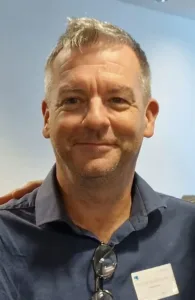
Peter Mackelworth, PhD
